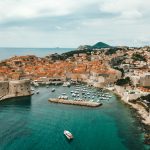An important endorsement for the new PM-designate.
During the last year, the government of Zoran Milanović paid almost 11 billion kuna as interest on Croatian debt, which is twice as much as in 2008. Orešković’s government will this year need to sell a little less than four billion euros of government bonds to refinance prior commitments, pay interest and ensure that the state functions as expected. Unsurprisingly, Prime Minister-designate Tihomir Orešković has chosen as his first foreign visit Kitzbuhel in Austria and the gathering of investors who buy Croatian government bonds. Orešković is reportedly the main star of the gathering, since this is the first time in 17 years that the participants have a chance to meet with a Prime Minister-designate. Usually, such gatherings are attended by finance ministers and not prime ministers, reports Vecernji List on January 14, 2015.
On Thursday, a speaker at one of the panels was the Croatian National Bank Governor Boris Vujčić who presented macroeconomic trends in Croatia. About twenty participants have expressed their interest to meet with Orešković. Organizers say that such meetings are usually done in groups so investors spoke with Orešković for at least half an hour and in groups of three to four people. Orešković’s appointment has been received with approval. Irrespective of the change of government, financial circles do not expect that Croatian credit rating will be lowered at this time, but its future changes will depend on the budget and the plans of the new government.
“Strong growth in the eurozone contributed to Croatian exit from recession, but growth remains below average in comparison with the Central and Eastern European region because of the structural limitations of the economy and the need to solve the problem of high fiscal deficits and debts”, said recently Lubomir Mitov, chief economist of UniCredit, which is the host of the gathering in Kitzbuhel, who believes that the Croatian government will have to make difficult decisions about priorities in spending or revenue optimization in order to maintain the deficit under control. Orešković’s statement following his recent meeting with Croatian President suggested that he would rely on the use of “dormant assets” for debt reduction and financial consolidation. When it comes to unused state property, it would probably be sold, while the private property would be taxed. For Croatian creditors this is something they wanted to hear, especially since the banks in Croatia have reached the upper limit of acceptable exposure to the state finances (25 percent) and in the future all new funding will have to be found in foreign markets.
Outgoing Finance Minister Boris Lalovac said he supported Orešković’s decision to go to the conference in Kitzbuhel. “I am glad we have a Prime Minister who will be actively involved in the management of public finances and public debt. He will hear from investors what they expect to happen in the world financial markets in 2016”, said Lalovac.
Asked about a possible decision by Standard and Poor’s rating agency, Lalovac said he expected that the Croatian rating would be unchanged. Talking about the statement of the future Prime Minister about possible introduction of property taxes, Lalovac said that this was not a good solution and that such idea cannot be implemented in 2016. “HDZ had previously been against it, but now the PM-designate is trying to introduce it. We do not support any another tax burden on citizens, so in that case some other taxes should be reduced”, said Lalovac.







